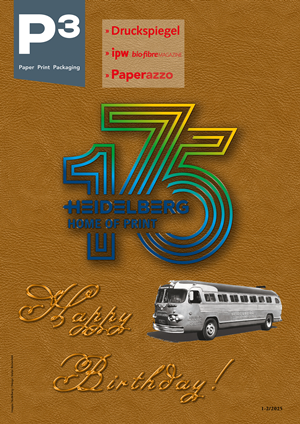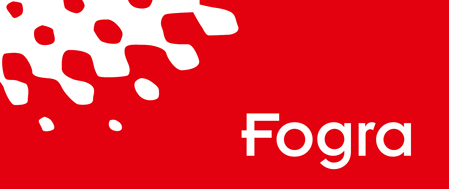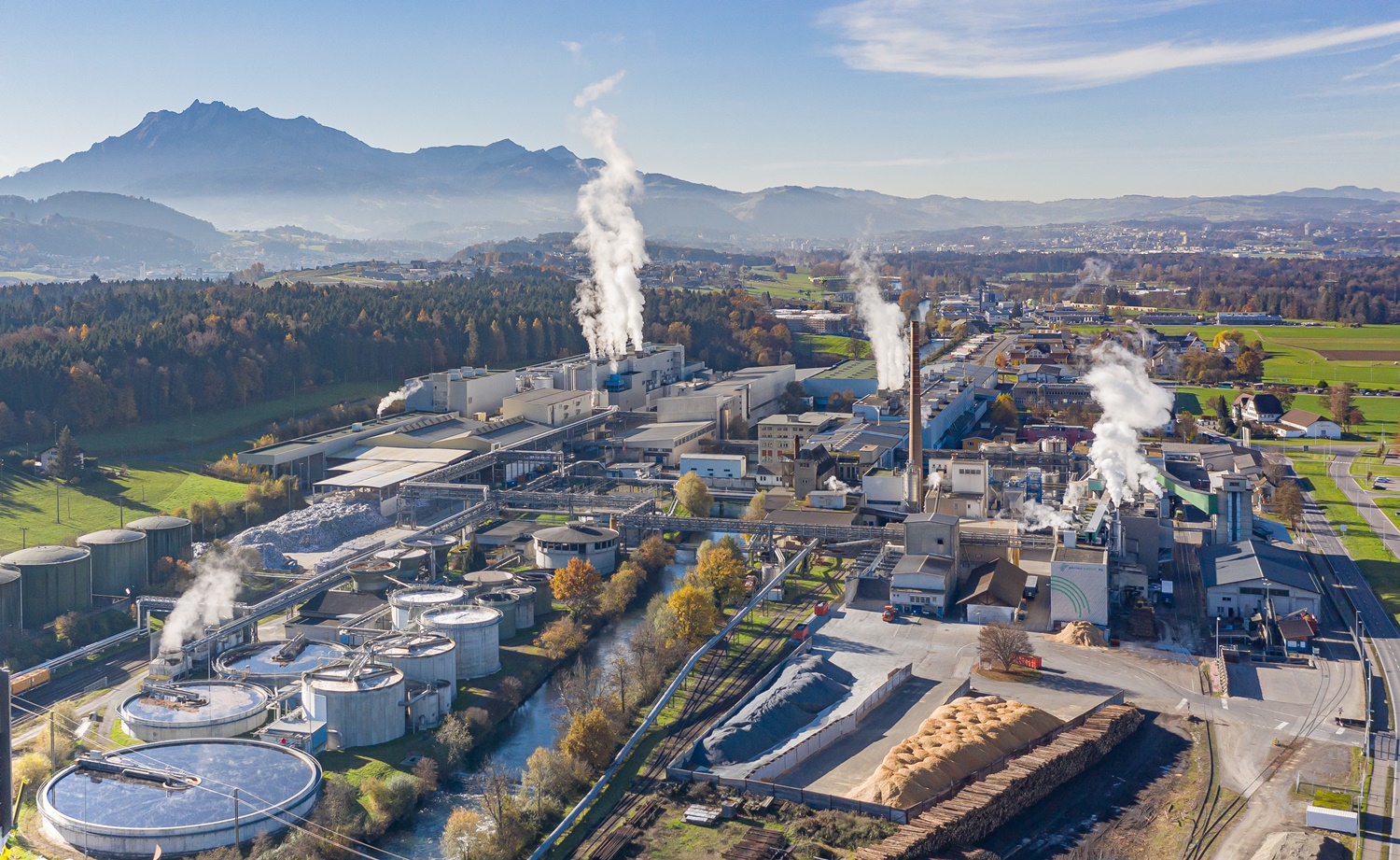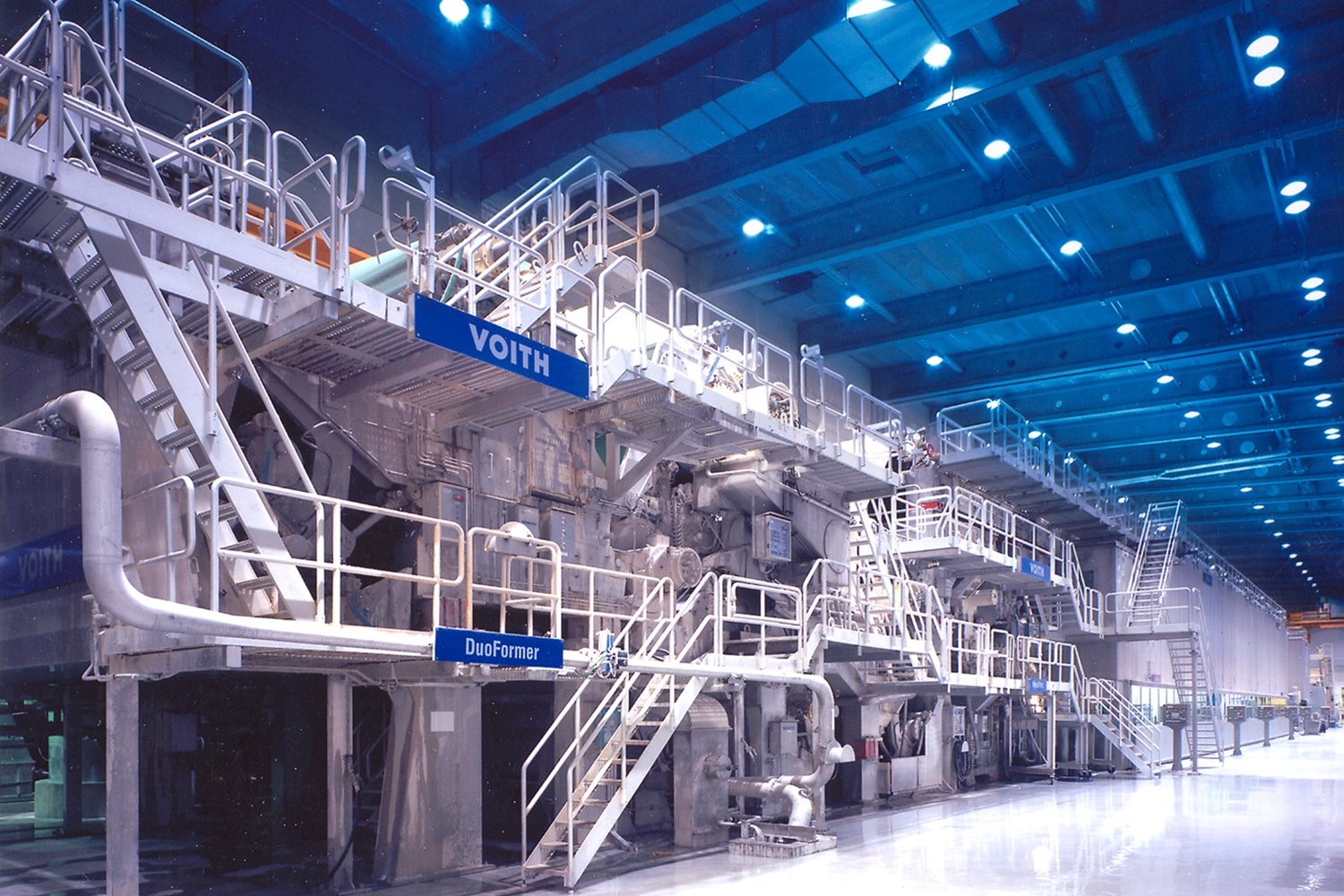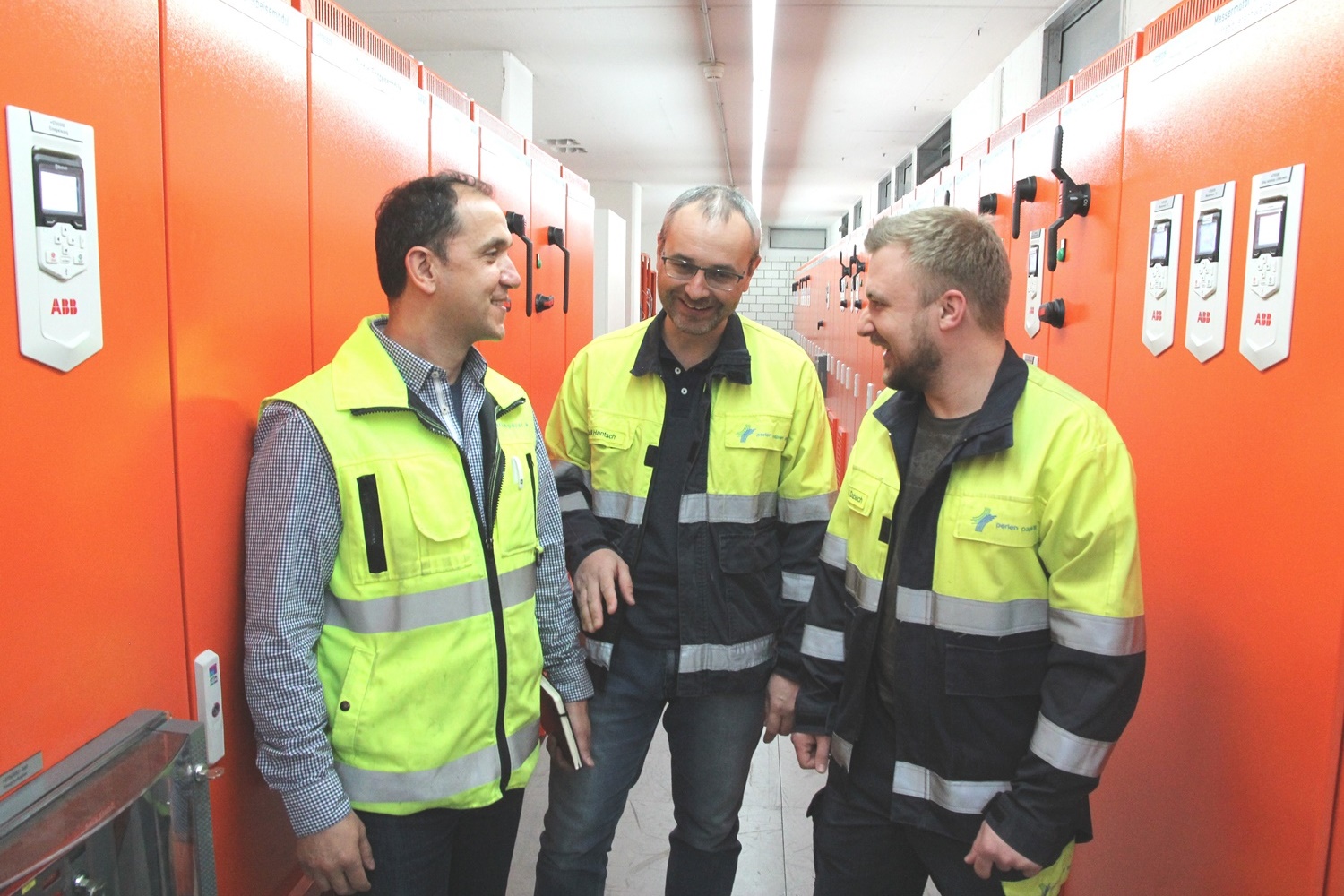P3 5-6/2022 en
Multidrives With Multiple Benefits
ACS880 Multidrives for PM 4 of Perlen Papier
Focus On
Paper manufacturing has a long tradition in Perlen, Switzerland. Since 1873, today's Perlen Papier AG in the canton of Lucerne has been producing paper for press products. Each year, two machines produce more than 560,000 tons of it. With paper machine 4 (PM4), the family business has been producing high-quality LWC offset papers (wood-containing, coated magazine papers) for two decades. These are produced “online”, i.e. produced as base paper, coated, and calendered in a single pass. The PM4 has a production capacity of 200,000 tons of paper per year, with a wire width of 6 meters and a trimmed working width of 5.36 meters. The design speed is 1,600 meters per minute.
Kriko Engineering has comprehensively modernized the drive technology of Perlen Papier's paper machine 4 with ACS880 multidrives. Highlights of the frequency converters from ABB are their modern technology, the direct torque control (DTC), the clear and compact system design as well as the ease of maintenance.
Perlen Papier AG produces more than 560,000 tons of paper for press products annually at its mill.
Complete machine follows after slitter winder
In 2022, the drive technology of the PM4 was to be completely renewed. Kriko Engineering GmbH, which had already worked for Perlen Papier in the past, won the tender. The system integrator from Merzhausen (Baden-Wuerttemberg) is a specialist for individual automation solutions, among others for the pulp and paper industry, and one of the partners in sales and engineering of ABB multidrive modules.
Project manager Leonard Krasniqi from Perlen Papier is supervising the retrofit measures. As plant engineer Elektro PM4, he knows the paper machine by heart. He explains the reason for the modernization: “The PM4 was built in 2000. Its drive technology was outdated after 22 years of operation and the manufacturer did not develop it further. On top of that, there were bottlenecks in spare parts and there is ever less internal and external know-how available for the technology. The failure rate in the last few years was high. There was not a month without an interruption due to drives problems.”
The modernization of PM4 is a three-stage project. It started with the conversion of the slitter winder in 2020 by Kriko, followed by the paper machine two years later. By early 2023, the project is to be completed with an upgrade of the process visualization.
As with the slitter winder, the drive technology of the PM4 is implemented with ACS880 multidrives from ABB. Frequency converters from ABB are well represented in the plant, controlling pumps, drives and multi-motor drives. Industrial drives and multidrives of the ACS800 and ACS880 families are used. Some of the older ACS604 series drives modules that are still in place are to be replaced by modern ABB frequency converters in the beginning of 2023.
“The fact that the frequency converter was at the end of its life cycle was essential for Perlen Papier's decision to go with ABB and the ACS880 multidrives.”
Karl-Anton Kleiser, Technical Managing Director at Kriko
Modern drives with simple maintenance
The Technical Managing Director at Kriko, Karl-Anton Kleiser, explains: “The fact that the frequency converter was at the end of its life cycle was essential for Perlen Papier's decision to go with ABB and the ACS880 multidrives. Its R8i modules can be changed quickly and easily for maintenance. Other positive features are the simple, structured system design consisting of a panel and a control unit to form a power module, as well as the good operator guidance in the panel.”
For this order, Kriko has integrated four ACS880 multidrive frequency converter systems (690 volts) with a total of 64 drives modules (18 amps to 900 amps). They were installed in Rittal large cabinet systems of type VX25. The combined feed-in power of the four units is 10.47 megawatts.
The ACS880 multidrive modules in the R8i size are only used as a 410-amp variant. By parallel connection, the efficiency can be increased with these frequency converters. Kriko took advantage of this in the project. In addition, the units can be used as drive units and as feed units. This simplifies spare parts inventory, as only a few parts need to be kept in stock for the complete paper machine.
High system availability thanks to retractable module technology and memory unit
The R8i size power feed and drives modules are equipped with rollers, making them easy to install and remove. When pushed into the control cabinet, they automatically snap into the sockets of the quick connector, thus connecting the motor cables. This significantly facilitates the connection work. For maintenance work and quick access to the connections, the modules can be pulled out of the cabinet.
High system availability is also ensured by the plug-in memory unit of the devices, which contains the entire firmware including all user settings and motor data of the respective device. If the power module or the control unit is replaced, the new frequency converter can simply be put back into operation without any special technical knowledge by re-plugging the memory unit. An automatic handshake protocol ensures that it immediately recognizes the control unit. There is no need to set parameters again or fine-tune the drives when replacing the unit, as the complete settings are stored in the memory module.
High compactness and precision
ABB's multidrive modules are extremely compact. The total control cabinet width for the four power feed units and the 64 drives modules together is 42 meters, with a depth of 600 millimeters. For the cabling, the existing cable entries and outlets in the floor could be used without the need to intervene in the structure. The new control cabinets could be built in a way that the connections in the cabinets exactly matched the existing cable outlets. Only two existing cables had to be extended. Karl-Anton Kleiser emphasizes, “Another advantage is that it was possible to deliver the cabinets without built-in R8i modules. That made the installation easier.”
The DTC (direct torque control) technology imparts high control accuracy and very excellent dynamic characteristics to the frequency converters. In multi-motor applications such as that of a paper machine, the individual drives modules enable fast transmission of the torque and speed signals for controlling the paper tension with the aid of the DTC process.
The replacement of the old control cabinets with new ones has been carried out at the end of January 2022. In the subsequent week, Kriko has put the new drive technology into operation. At the beginning of February 2022, the PM4 already went back into production. Leonard Krasniqi is satisfied with the project progress: “We had a very good project team and the collaboration was likewise very good. This is even more remarkable because it was not a pure replacement, but a completely new technology has been installed. Furthermore, we switched from Profibus to Profinet. We were able to start the paper machine almost at the push of a button.”
Extension of the on-call service contract
To maximize plant availability, Perlen Papier relies on local support from ABB Switzerland. The on-call service contract with ABB guarantees fast support 24/7 at the highest response time level (four hours). This contract is now being extended with the PM4's new frequency converter technology. ABB has also included all of the paper manufacturer's AC drives, including firmware and parameters, in a cloud solution to monitor the units throughout and help with maintenance.
ABB has been working closely with external distributors for more than ten years. Companies that participate in this program are called ABB Authorized Value Providers. This offers its customers certified services in the areas of sales, support, maintenance and engineering in close cooperation with ABB. The ABB Value Provider program supports various distribution channels such as wholesalers, system integrators, panel builders and service providers.
The modular configuration of the ACS880 Multidrive frequency converters enables control of applications with multiple motors. The Multidrive system consists of Multidrive modules connected to a common DC busbar that supplies DC voltage to the drives modules. The individual modules convert the DC voltage for powering the motors into a regulated AC voltage. A feed unit installed on the input side supplies the DC voltage. The principle of the ACS880 Multidrive, which is based on a common DC busbar, enables a single feed point and, due to the simultaneity factor, a smaller feed power than with separate feeds, as well as the common braking of several drives.
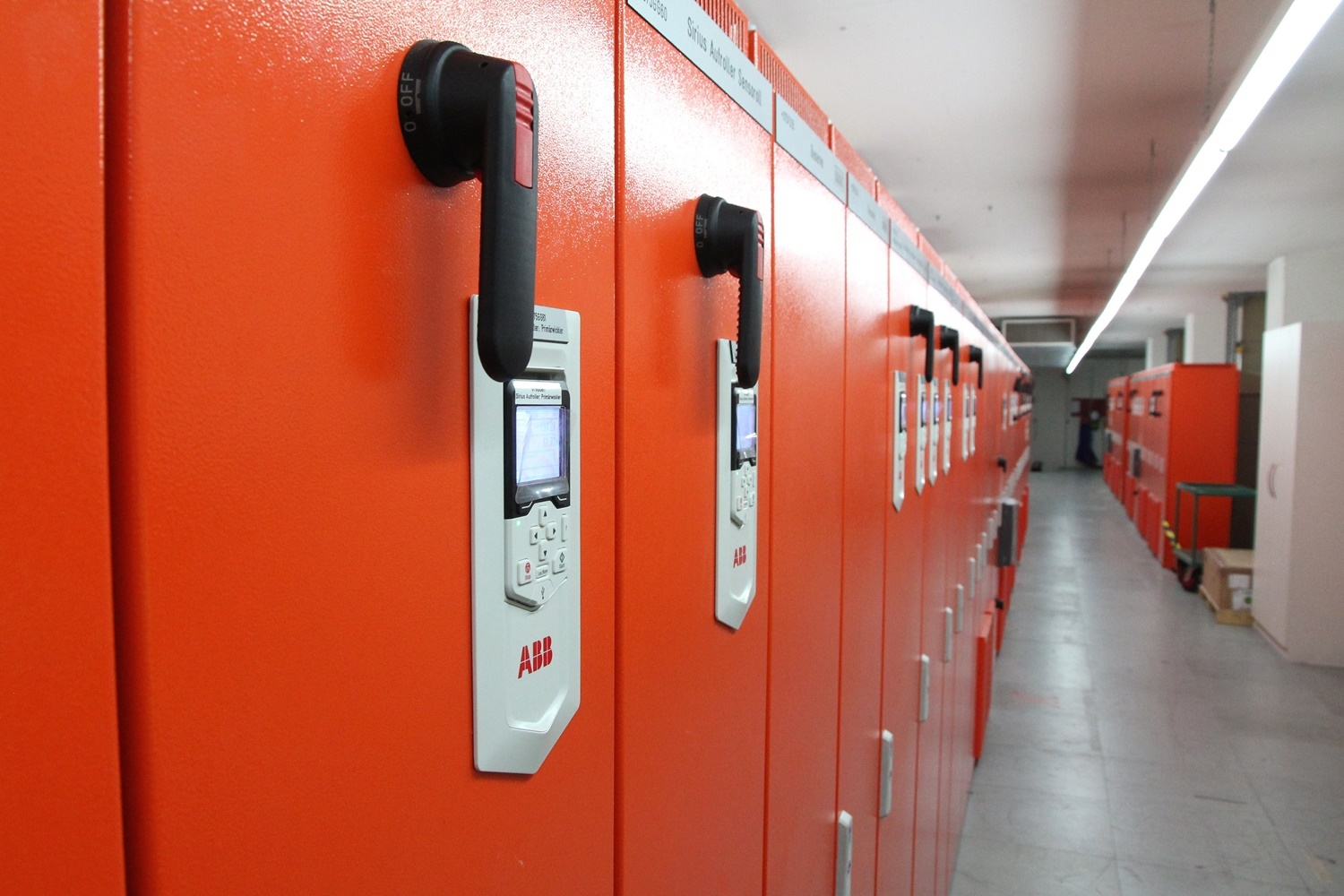
The Multidrive modules are highly compact. The total control cabinet width for four supply units and 64 drives modules is 42 meters.
Author: Marius Steinmann, Regional Manager South-West, ABB Motion Germany
Editor: sbr
Images: Perlen Papier [1,2]; ABB [3,4]

